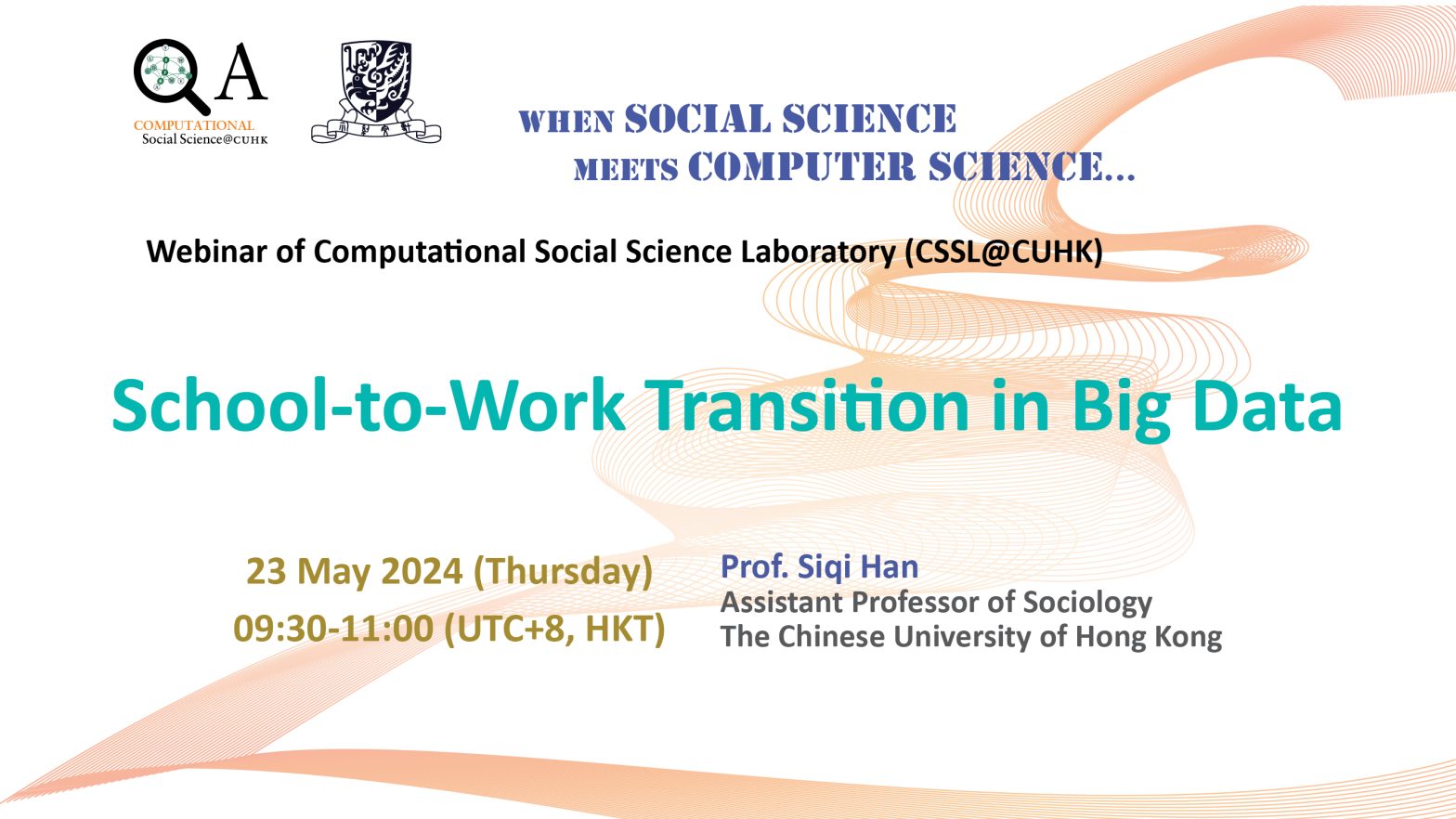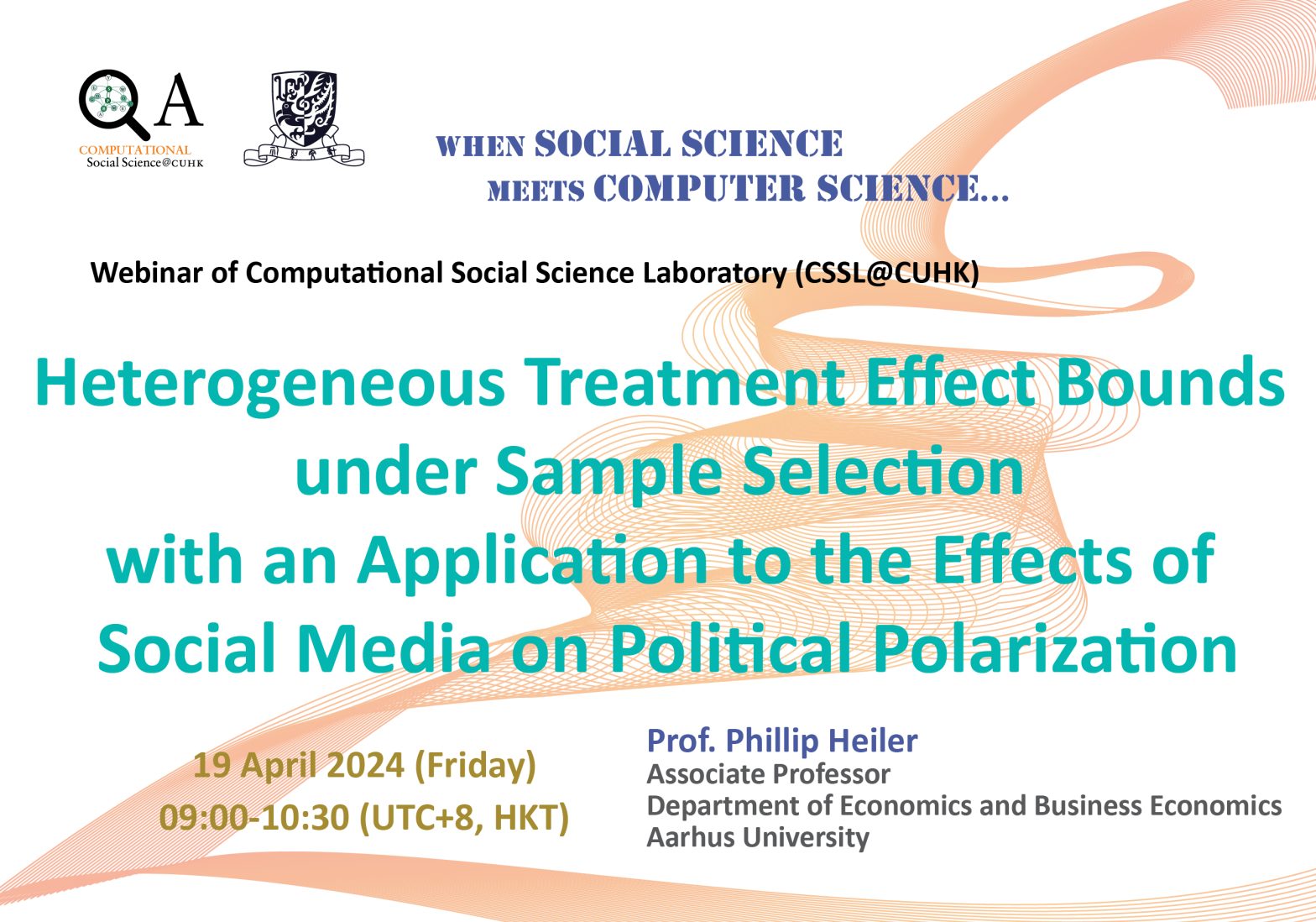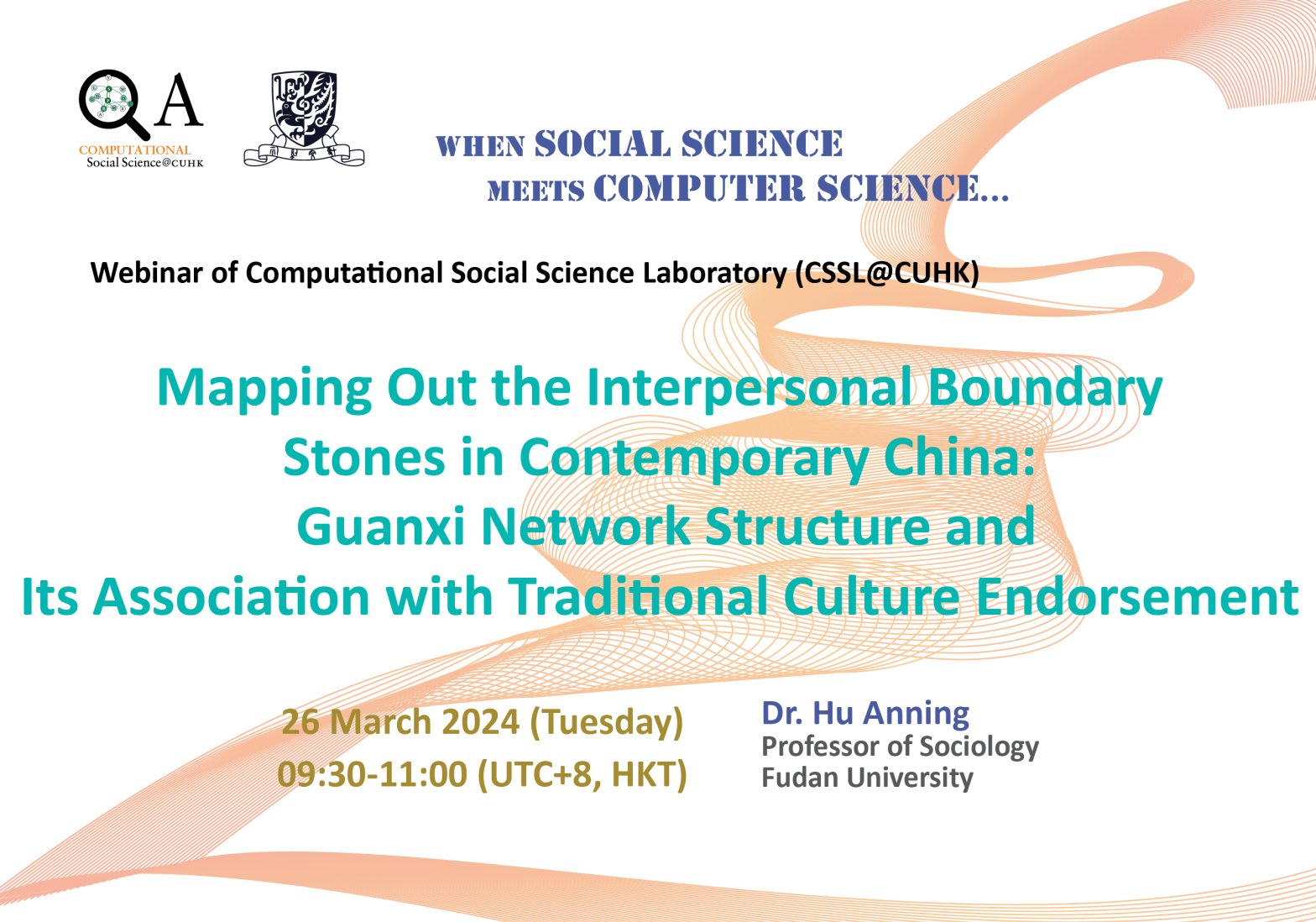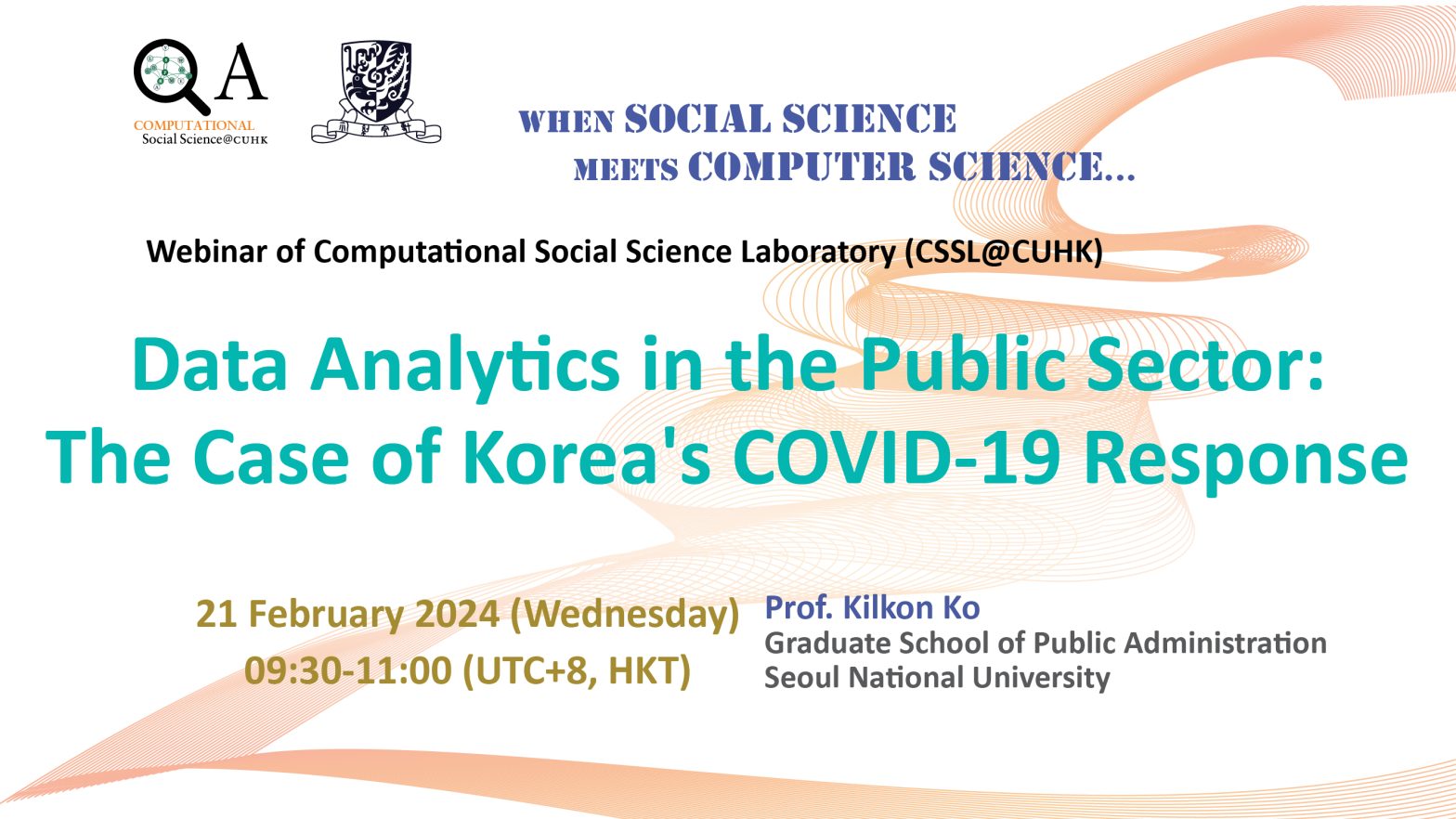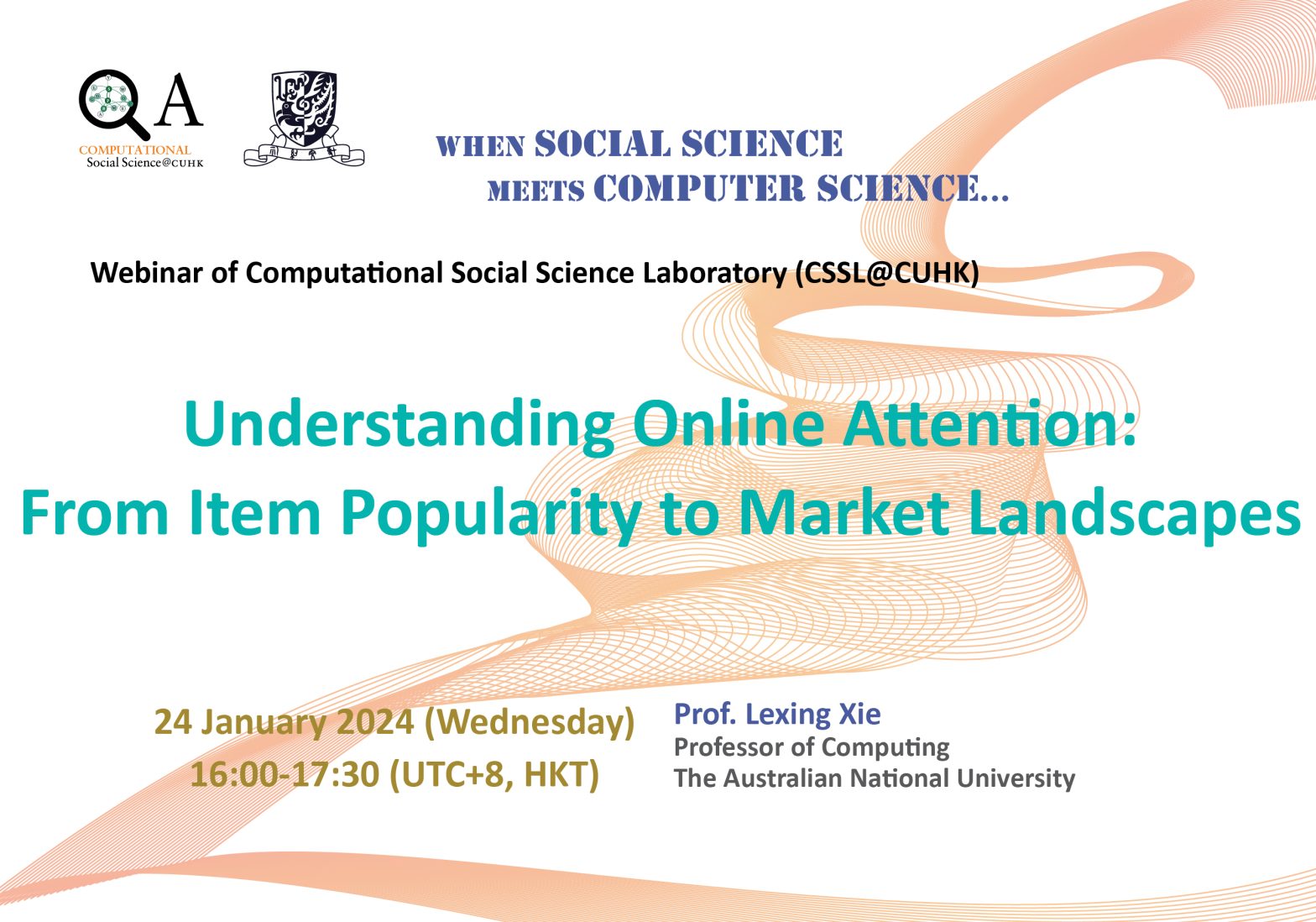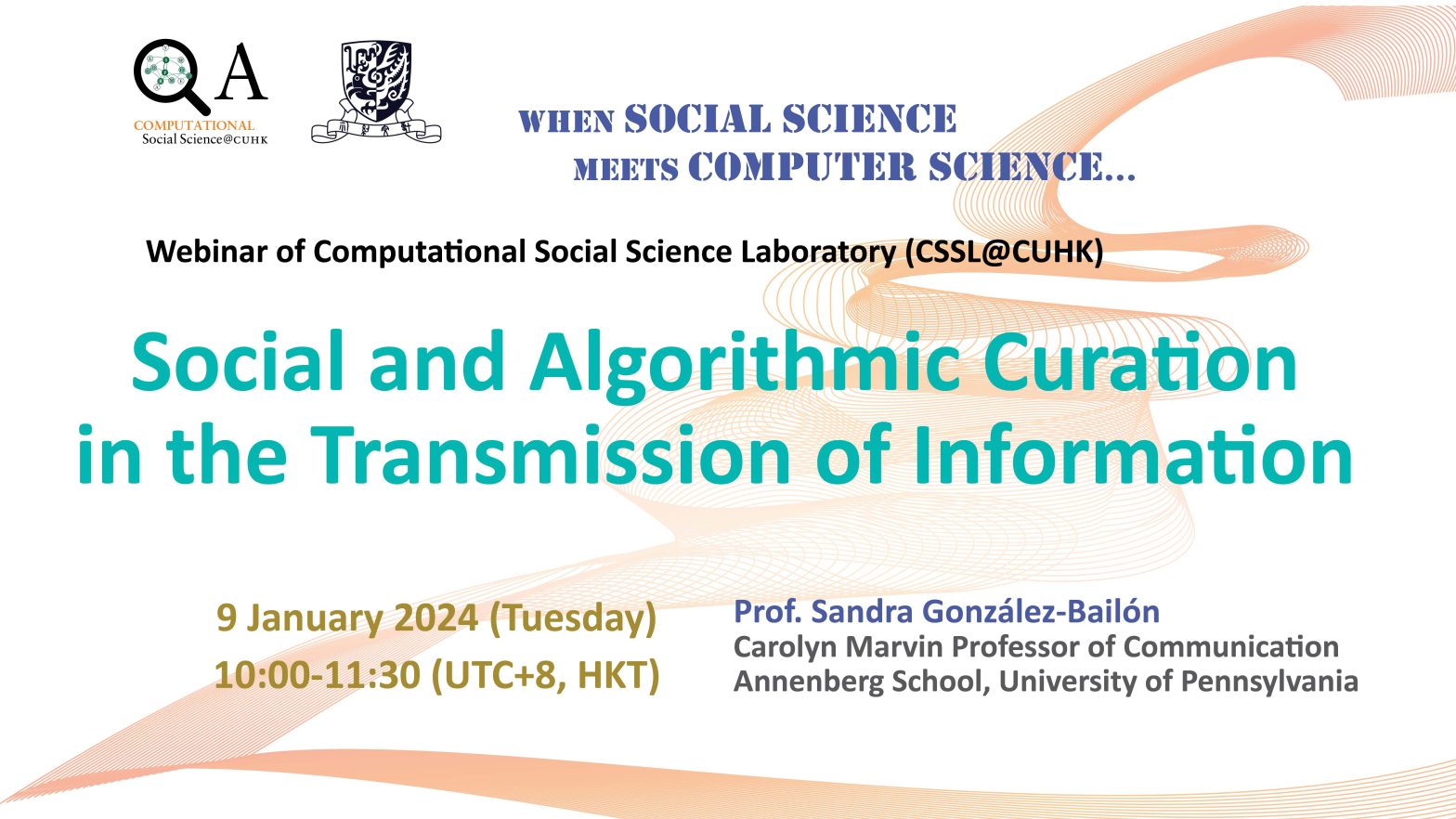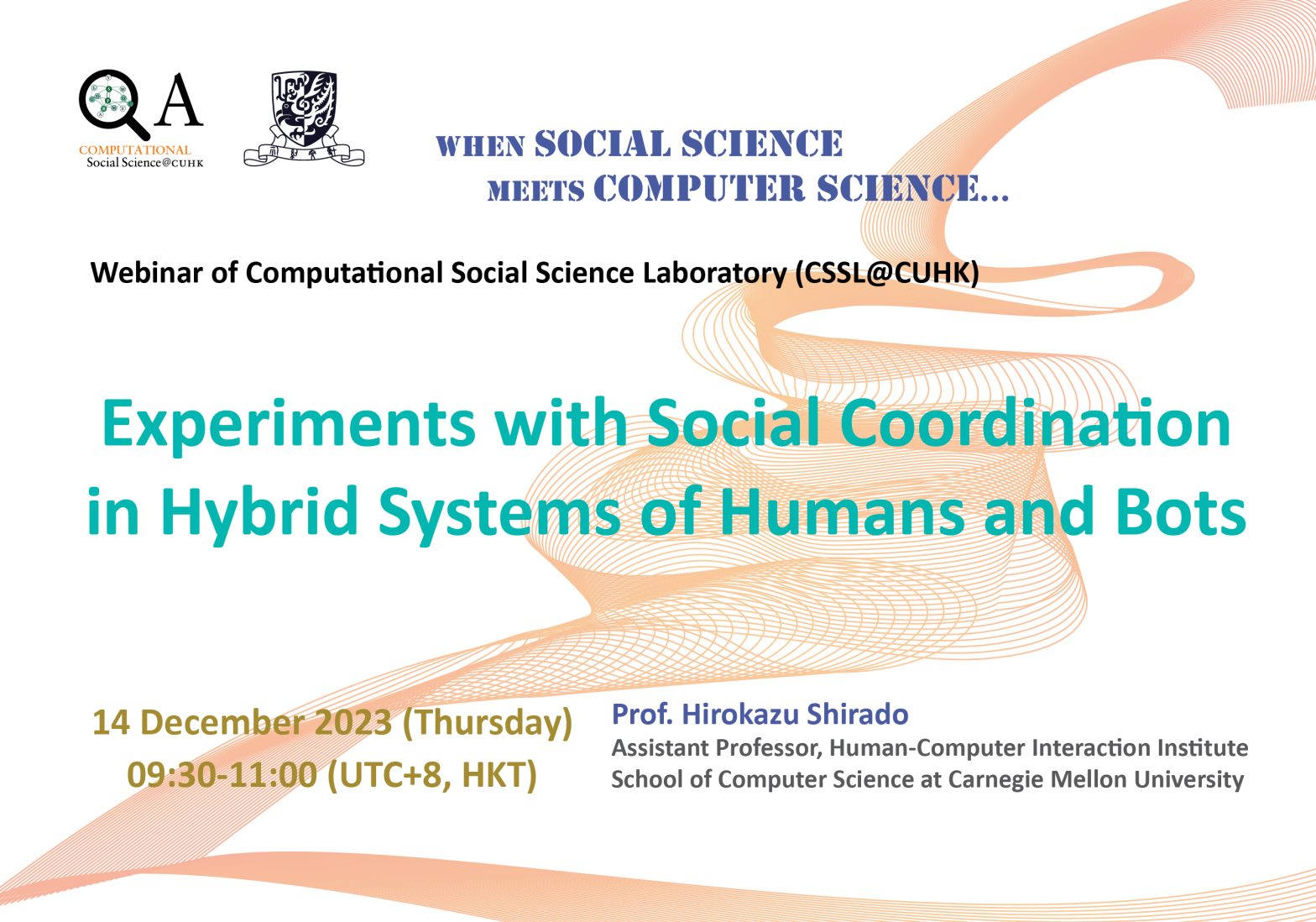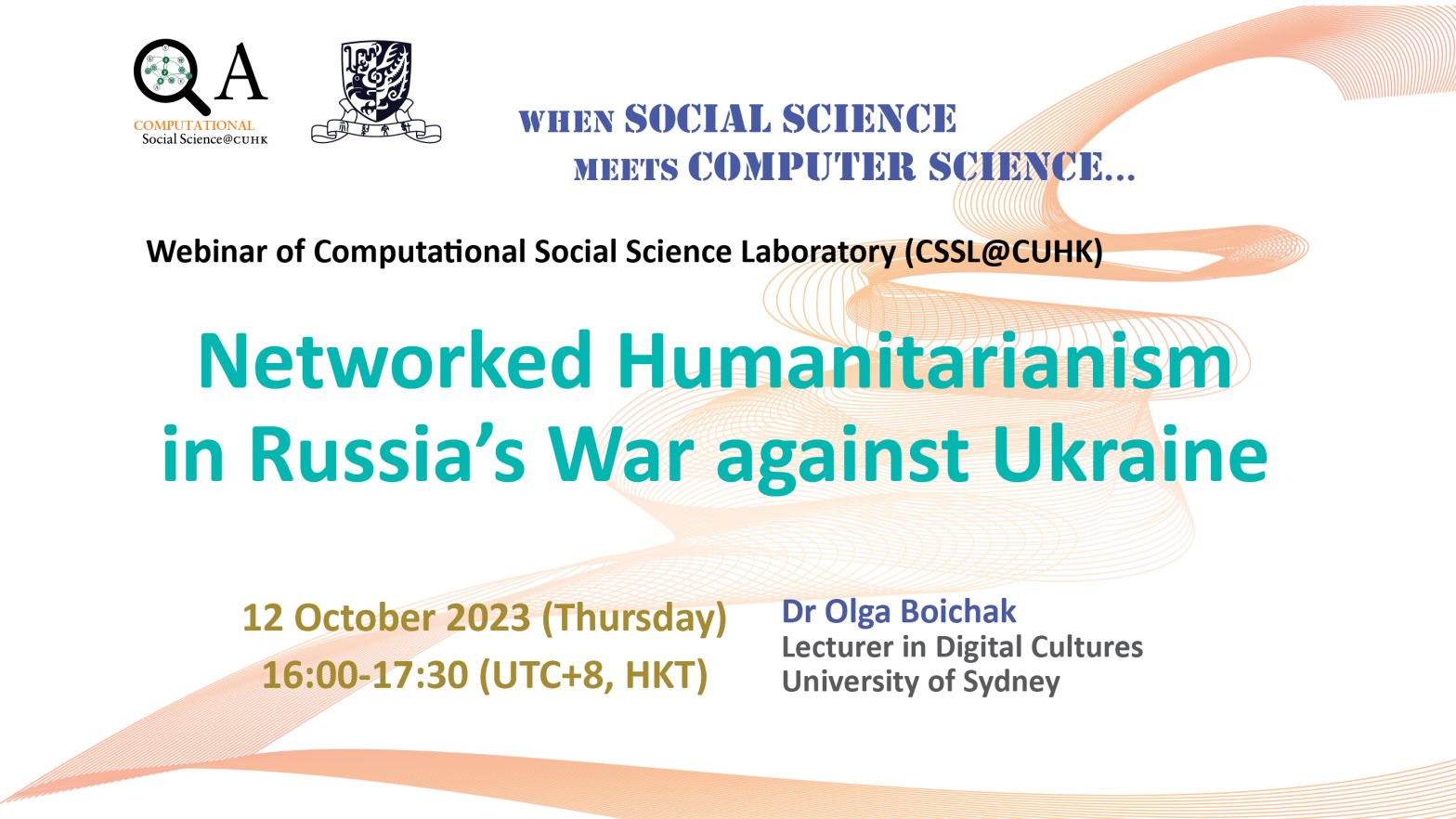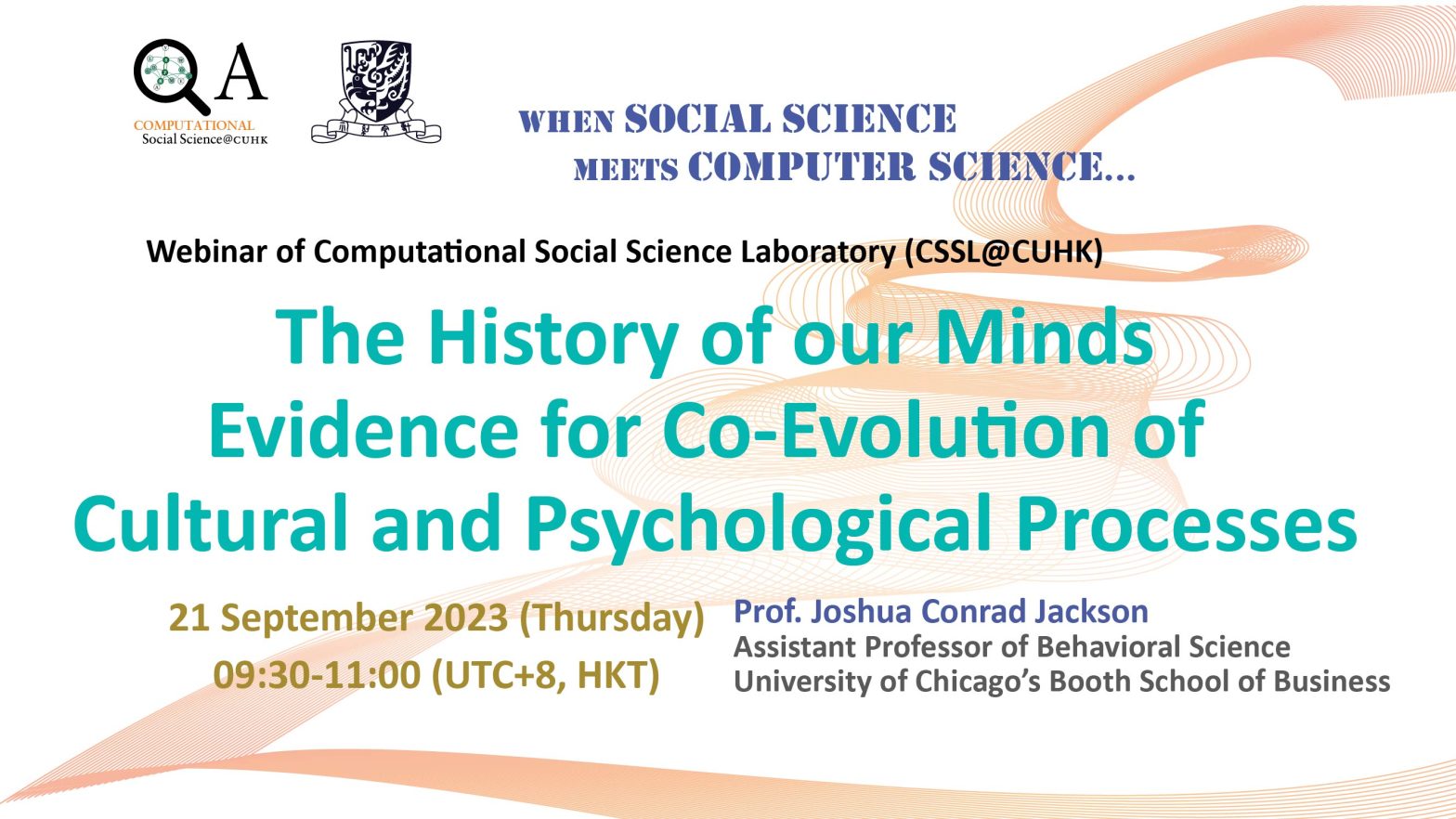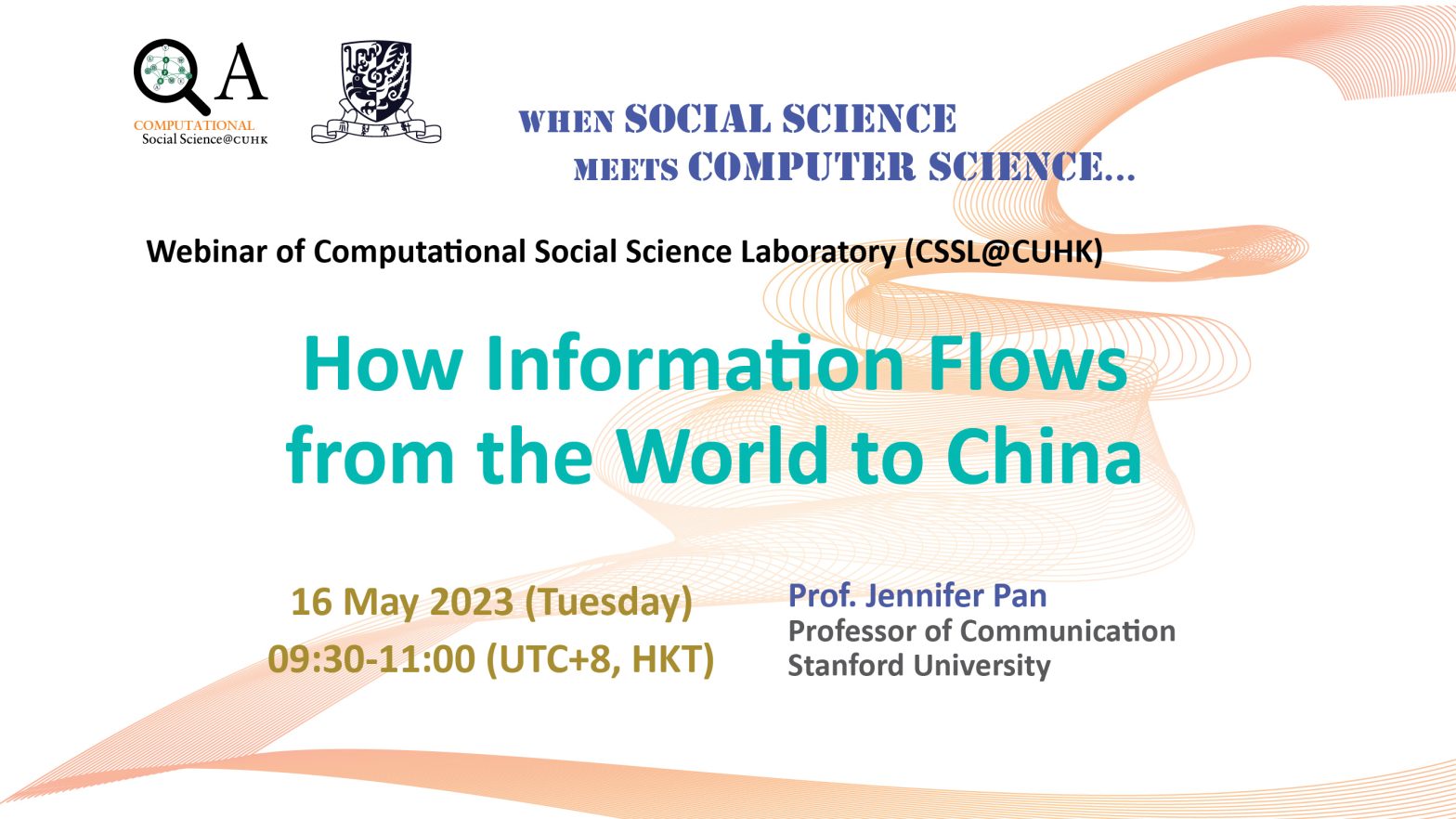Abstract: Professor Han will present a series of her published and ongoing works that provide an overview of how unstructured big textual data can be collected and analyzed using computational social science methods in the research area of social stratification, specifically in the study of school-to-work transition. She will compare these new approaches to classical… Continue reading School-to-Work Transition in Big Data
Category: Monthly Webinars
Heterogeneous Treatment Effect Bounds under Sample Selection with an Application to the Effects of Social Media on Political Polarization
Abstract: We propose a method for estimation and inference for bounds for heterogeneous causal effect parameters in general sample selection models where the treatment can affect whether an outcome is observed and no exclusion restrictions are available. The method provides conditional effect bounds as functions of policy relevant pre-treatment variables. It allows for conducting valid… Continue reading Heterogeneous Treatment Effect Bounds under Sample Selection with an Application to the Effects of Social Media on Political Polarization
Mapping Out the Interpersonal Boundary Stones in Contemporary China: Guanxi Network Structure and Its Association with Traditional Culture Endorsement
Abstract: Guanxi research would benefit from an empirical portrayal of holistic guanxi network structures and consideration of sociologically meaningful antecedents such as one’s cultural value endorsement. This study, drawing on the reported trustworthiness of a rich array of referees in one’s guanxi network collected from the Traditional Culture and Cognitive Pattern Survey, identifies two types… Continue reading Mapping Out the Interpersonal Boundary Stones in Contemporary China: Guanxi Network Structure and Its Association with Traditional Culture Endorsement
Data Analytics in the Public Sector: The Case of Korea’s COVID-19 Response
Abstract: The COVID-19 pandemic has been a global disaster with significant impacts. In response to it, an unprecedented amount of data was generated. This data has been utilized in various ways for research and policymaking. In this webinar, Professor Ko will examine the significance of data quality from the perspective of data analytics and explores… Continue reading Data Analytics in the Public Sector: The Case of Korea’s COVID-19 Response
Understanding Online Attention: from Item Popularity to Market Landscapes
Abstract: What makes a video popular, what drives collective attention online, what are the commonalities and differences between clicks and transactions in a market? This talk aims to answer these three questions. I will first discuss a physics-inspired stochastic time series model that explains and forecasts the seemingly unpredictable volumes of views over time. This… Continue reading Understanding Online Attention: from Item Popularity to Market Landscapes
Social and Algorithmic Curation in the Transmission of Information
Abstract: The diffusion of information requires prior exposure: we cannot disseminate what we do not see. In online platforms, information exposure results from a complex interaction between social and algorithmic forms of curation that shapes what users see in their feeds. In this talk, I will discuss research using social media data that investigates the… Continue reading Social and Algorithmic Curation in the Transmission of Information
Experiments with Social Coordination in Hybrid Systems of Humans and Bots
Abstract: In this talk, I will introduce my online experiments aimed at examining how people coordinate with each other in the presence of machine intelligence. I will begin by discussing the findings published by Nature in 2017, which involved the injection of bots into experimental networks where people (N = 4000 in total) were playing… Continue reading Experiments with Social Coordination in Hybrid Systems of Humans and Bots
Networked Humanitarianism in Russia’s War against Ukraine
Abstract: Social media have reconfigured the international relief landscape by opening discursive spaces for grassroots storytelling and activism. Bringing the images of distant suffering closer than ever before and affording an array of opportunities for framing, representing, and responding to crisis events, platforms have shifted the relationship between information and capacity for action. This shift… Continue reading Networked Humanitarianism in Russia’s War against Ukraine
The History of our Minds: Evidence for Co-Evolution of Cultural and Psychological Processes
Abstract: Biologically modern humans are more than 100,000 years old. Many scientists have devoted their lives to understanding how architecture, social structure, and language has changed over this history. Yet we know much less about the history of human minds. Behavioral science research has instead focused nearly exclusively on contemporary people, and psychological theories often… Continue reading The History of our Minds: Evidence for Co-Evolution of Cultural and Psychological Processes
How Information Flows from the World to China
Abstract: In this talk, we examine whether and how information flows across national borders. By developing a semi-automated system that combines deep learning and human annotation to find co-occurring content across different social media platforms and languages, we identify inflows of information from the global information ecosystem into China. We find that approximately one-fourth of… Continue reading How Information Flows from the World to China

